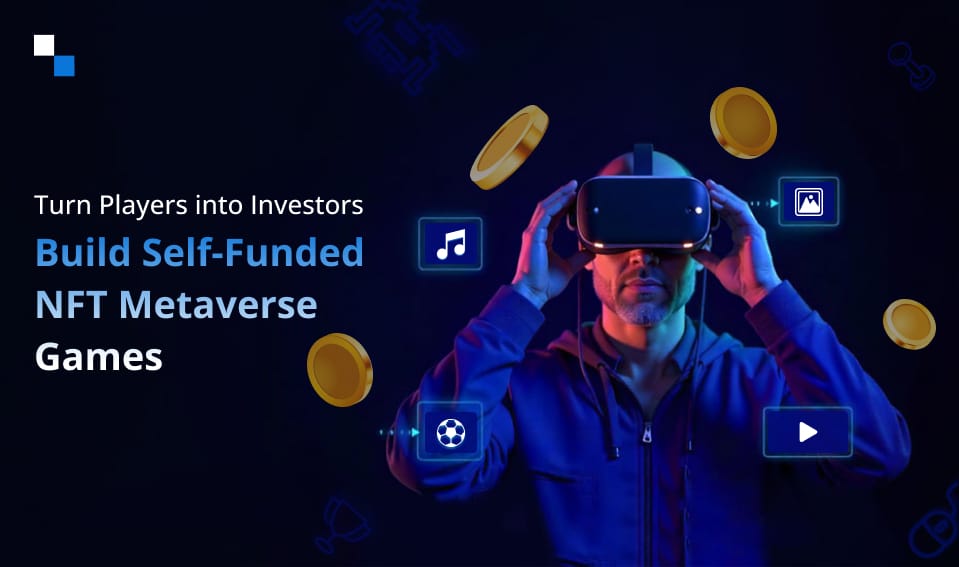Over the years, we have been habitual to have face-to-face interaction with the doctor to discuss health issues. With the changing times, healthcare services have started providing virtual consultations. It has helped the masses during the era of Covid19 pandemic to get medical assistance remotely. The evolution of digital technology has made it easier for medical practitioners to apply Metaverse Healthcare Solutions for providing better and quicker results. It does not require the patients to be physically present in the clinic or hospital to undergo treatment for their ailments.
As the trend of using metaverse in healthcare industry is gaining pace, it has made it easier for doctors to handle their patients remotely. At the same time, it saves the time and effort of the patients to visit the clinic and avoid the discomfort of traveling when their health disallows them to do so.
No wonder, Metaverse in Healthcare has brought an unprecedented change in the ways doctors use to prescribe preventive, remedial, and surgical treatments to their patients. Everything is now made easier with the help of AR (Augmented Reality) and (Virtual Reality) and a virtual 3D ecosystem that can be accessed through VR/AR headsets & glasses, computerized systems, or smartphones.
History of Metaverse Development
If you think that Metaverse developers have started growing like mushrooms all of a sudden then you are wrong. The technology has slowly evolved, but the building blocks were laid down in 1838 by the famous scientist Sir Charles Wheatstone. He introduced binocular vision, in which two separate images were meant for each pair of eyes and they were combined together to make a 3D image.
The concept of binocular vision helped in the development of stereoscopes and modern VR headsets. However, the first VR machine was invented by Morton Heilig in 1956, and it was named sensorama machine. It helped in simulating the experience of bike riding in Brooklyn to the audiences by enabling 3D video and a special chair that kept vibrating, along with audio and scents. He was also the first person to have patented a head-mounted display that helped in combining stereo sound with stereoscopic 3D images, in 1960.
After a gap of 10 years, MIT enabled the users to take a virtual tour to Aspen, Colorado with the help of Aspen Movie Map. It was for the first time when that virtual reality technology was used to transport a person from one location to the other.
However, the term ‘Metaverse’ was first used in 1982 by Neil Stevenson, a writer, in his novel ‘Snow Crash’. A lot of scientific research was done for several years before the implementation of modern techniques of healthcare metaverse development started making changes in the real life.
Metaverse Healthcare Solutions Provides Greater Convenience To Patients & Their Attendants
Today, our healthcare systems have become strong with the help of web-based technologies, including metaverse. Now, patients can enter a three dimension space through their computer or smartphone to interact with the doctor and other healthcare professionals. There are some applications that help in the remote monitoring of patients who need intensive care. Metaverse in healthcare industry can also be used for virtual follow-ups.
Metaverse in Healthcare proved to be of great help when Covid19 outburst was at its peak, and people were advised to follow social distancing norms. Most of the schools, colleges, and offices were closed. The trend of remote working and work-from-home culture started developing rapidly since then. Since hospitals were flooded with Covid19 patients, it wasn’t safe for the common people to enter the overcrowded clinics and hospitals, the technologists were focusing on metaverse development with greater concentration in order to provide relief to the patients.
Major Channels Used By Metaverse Developers To Provide Better Healthcare Facilities
- Blockchain
Blockchain is an integral part of the metaverse in healthcare industry. It allows hospitals to manage decentralized communities that can use smart contract functionalities for making payments for services and paying platform fees. Moreover, valuable health data would also be stored securely on a distributed database that ensures total privacy.Unlike yesteryears, there would be no chance of loss or modification of data accidentally, and it would not even be processed too slowly due to the inefficiency of workers. Implementation of the metaverse in healthcare can also help patients to avoid the time-consuming and exhausting experience of visiting the clinic multiple times for follow-ups. - Cryptocurrency or Tokens
Like every healthcare service provider, a 3D clinic would also charge some fees from its patients. This aspect cannot be ignored while carrying out metaverse development for the healthcare industry. Thus, one has to choose the kind of blockchain to use, and which crypto coins or tokens would be accepted for providing different services, including physical examinations and diagnostics tests. - Digital Twins
A digital twin is a simulated model of a real-life process, object, or system. In a way, metaverse developers would simply produce a virtual replica of a healthcare center, patients, doctors, nurses, furniture, machines, accessories, and everything that could be present in the reality. Healthcare metaverse development helps to converge artificial intelligence (AI), augmented reality (AR), and virtual reality (VR) technologies to create a digital twin of a hospital or clinic that delivers the required treatment to the patients, and helps to lower the cost of healthcare facilities.
Benefits of Healthcare metaverse Development
- Telemedicine
Telemedicine was already there before Covid19 pandemic but it was never as popular as it became during the worldwide lockdown during the pandemic. Healthcare facilities were largely indulged in providing remote consultation and therapy. Even when the pandemic has started subsiding, the significance of telemedicine is still intact. Now, healthcare metaverse development tactics have made it easier for patients to visit 3D clinics using VR headsets to experience the next level of immersion. It provides them with a sense of confidence that comes after consulting a doctor and receiving appropriate treatment and guidance, as it happens in the real life.Telemedicine is perfectly suitable for patients residing in remote locations that have poor transportation systems and a lack of healthcare facilities. - Physiotherapy
Metaverse healthcare Solutions work finely for physiotherapy. Those facing some kind of situation that demands the intervention of a physiotherapist can enter the metaverse clinic. They will be instructed and appropriately monitored by their physiotherapist to make sure that they are performing the prescribed exercises correctly. It will surely help to take away the pain and provide relief to the patients. - Education & Training
Metaverse developers help remove physical barriers that hinder better education and training for healthcare professionals. They can create a 3D world in which doctors, nurses, and other healthcare workers can upskill themselves by receiving proper training in a simulated environment. The best part of using such tactics is that it won’t risk the lives of patients and neither make them feel inconvenient. - Health & Nutrition
Metaverse Healthcare Solutions can help encourage the common people to follow healthy diet habits and never skip nutrition. It would help in weight management and the general well-being of patients and prevent deficiency diseases. - Mental Health
A lot of people are suffering from anxiety and depression. The global pandemic fueled mental health issues in the most affected areas. Furthermore, people suffering from the conditions like schizophrenia and bipolar disorder who needed continuous counseling and medication greatly benefited from the metaverse in healthcare industry. - Collaborative Surgery

Metaverse developers can help surgeons to share their experience and expertise in handling intricate surgeries with beginners remotely. They can use AR and robotics to treat patients during emergencies. Penetration of the metaverse in the operation theatre can help women to have safe deliveries, even if they are unable to visit the hospital while suffering from labor pains. Similarly, badly injured people may also receive timely medical help from surgeons, and it would help the attendants to perform the prescribed sequence of actions under the guidance of experts in real-time.
Famous Companies That Are Already Indulged In Metaverse Healthcare Solutions
iMining: iMining Technologies Inc. is a Web3 company that made an announcement regarding the initiative taken by its subsidiary, Metaverse Advisory Group (MAG) for inducing metaverse in healthcare industry in collaboration with Glenrose Rehabilitation Hospital Foundation.
Latus Healthcare: Latus Health is another company that has already started working on metaverse in healthcare. It aims at providing occupational therapy digitally and helping cure mental illness.
Apollo Hospitals: Apollo Group made an announcement that it is ready to seek collaboration with 8chili In for metaverse development for providing better healthcare services and also help the in-house team to get trained about tackling different kinds of medical complexities.
Conclusion
Currently, medical experts and technologists are working in sync to make use of the metaverse in healthcare industry. They want to apply the combined power of AR, VR, and AI technologies to provide simulated experiences to doctors and patients. Metaverse in Healthcare can help in ensuring fitness, wellness, and a healthy lifestyle.
If healthcare metaverse development is your dream project, then the Antier team would be more than happy to provide complete technical support and assistance. Our team of metaverse developers can help leverage the unlimited potential of highly advanced technologies that can create digital twins of the healthcare center and the related infrastructure, in which the doctor and patient can interact comfortably.
Call us today to get the ultimate metaverse healthcare solutions that fit your budget and requirements!





